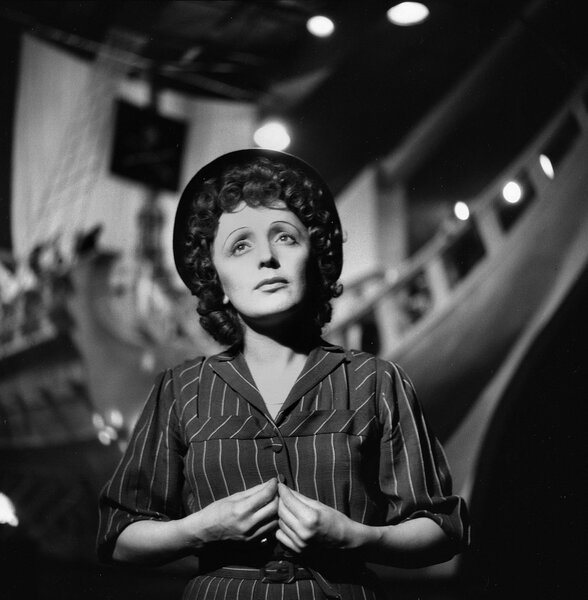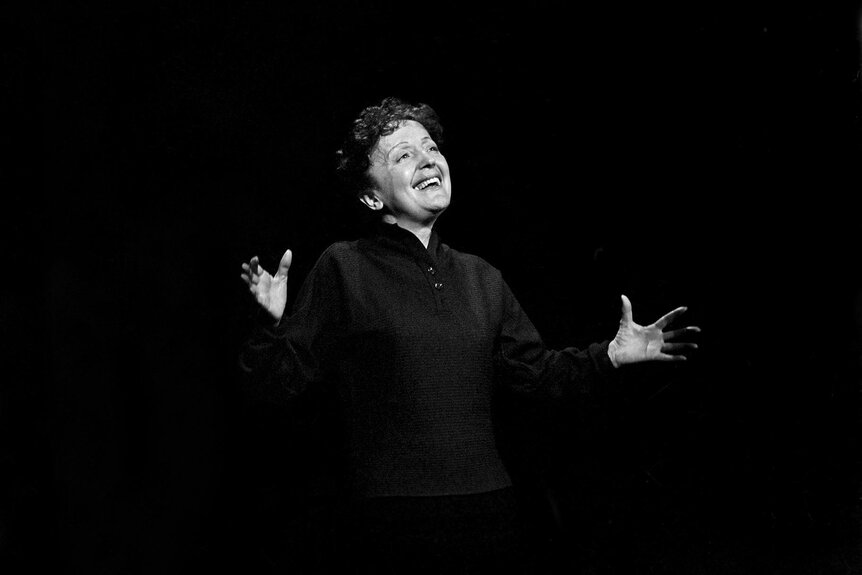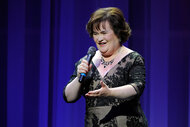Create a free profile to get unlimited access to exclusive show news, updates, and more!
Everything to Know About the Iconic French Singer Edith Piaf, Who Celine Dion Paid Tribute to at Opening Ceremony
Singer Celine Dion paid tribute to the "La Vie en Rose" chanteuse during the Olympic Opening Ceremony.

You don't need to have been born in France to recognize the song "La Vie en Rose."
The French song has been performed in many languages and by many artists over the years, from Lady Gaga to Louis Armstrong. It's a romantic and dreamy tune that has withstood the test of time.
But it's French singer Edith Piaf who first popularized the song, writing the lyrics and setting it to music in 1947. She then went on to write even more hits, including the recognizable tune "Je Ne Regrette Rien." Her contributions to French music and her impeccable vocals earned her the title, The Sparrow, per The Moulin Rouge in France.
Now, the French singer's influence on French culture and music is being recognized by the producers of the Olympic Opening Ceremony who recruited iconic artist Celine Dion to perform Hymn à l'amour.
The emotional moment will go down in history, especially since it marks one of Dion's first live performances since she was diagnosed with Stiff Person Syndrome.
Back in June, Dion told TODAY's Hoda Kotb that she was eager to perform again, saying, "I'm going to go back on stage, even if I have to crawl. Even if I have to talk with my hands. I will. I am Celine Dion because today, my voice will be heard for the first time — not just because I have to or because I need to. It's because I want to. And I miss it."
Edith Piaf's Childhood
The French singer was born Edith Giovanna Gassion in 1915. Her early years were marred by hardship, having been abandoned by her mother when she was only 2 months old in 1915, according to a 1981 report by the New York Times. She was raised by her paternal grandmother in a brothel in Bernay, a village just outside of France.
Her passion for singing grew around the age of 8, when she joined her father, a street performer, in Paris, according to the NY Times. As her talents grew, the then-minor attracted attention from others, including nightclub owner Louis Leplee, who helped Edith come into her own as an artist and is credited for changing her last name to Piaf, Parisian argot for ''little sparrow."
Leplee, who was murdered by mobsters in 1936, played a massive role in Piaf's career, booking her to perform in his nightclub Le Gerny’s and helping her release two albums, per Connexion France.
Her Death
Though Piaf faced many obstacles in her career, she found purpose through singing and gave hope to many throughout World War II, an era marked by death and tragedy.
However, her career was hampered by multiple accidents and health issues. In 1958, she was terribly injured in a car accident, which left her with broken ribs and arms, per the NY Times. Then, a year later, she underwent multiple surgeries for a myriad of issues, once even dramatically collapsing on stage amid these struggles. But this only made the people love her more, with her friend Charles Aznavour telling the NY Times, "She was never so adored as when she was almost dead."
Her long battle came to an end in 1963, when she suddenly died on October 11. Her tragic death threw the nation into mourning and made her more famous than ever.
"La Vie en Rose"
Piaf briefly found fame in the United States in the '50s, appearing on the Ed Sullivan Show eight times from 1952 to 1959, according to the TV host's site.
With her music now being played stateside, other artists, including Louis Armstrong, Grace Jones, and Bing Crosby, began to record their own versions of her songs, particularly "La Vie en Rose," which was inducted into the Grammy's Hall of Fame in 1998. And, more recently, Lady Gaga — who sang another French tune during the Opening Ceremony — performed the song in French during her jazz and piano show in Las Vegas.

















